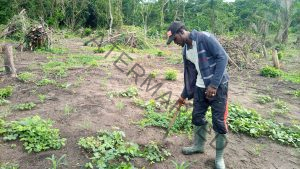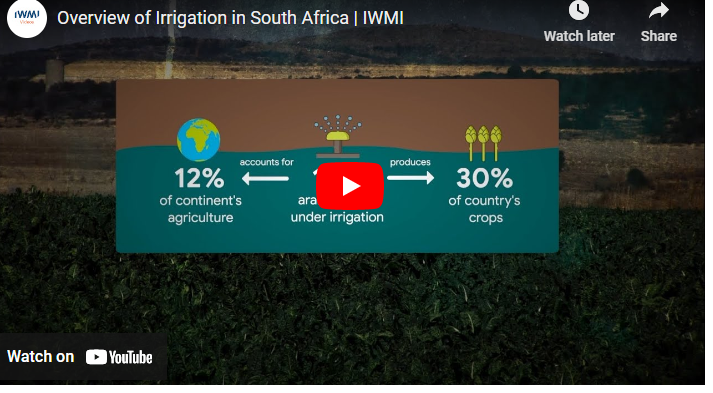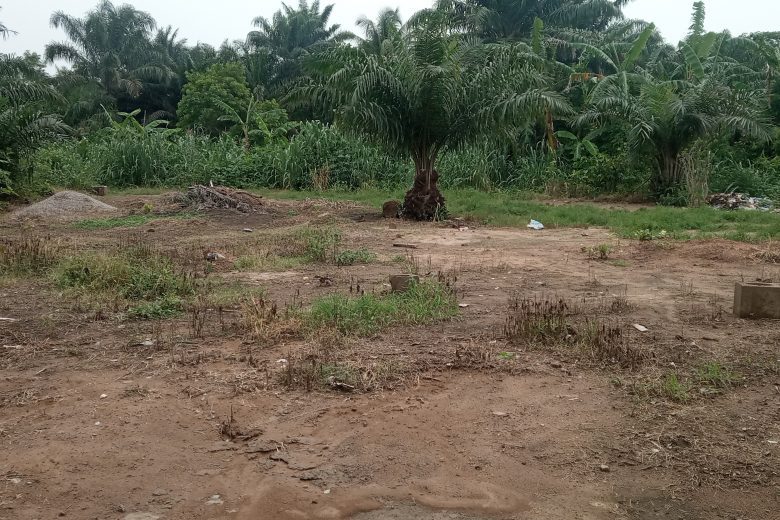Agricultural practices in Zambia contribute about 19% of the country’s national Gdp. Not only this, Agriculture or let’s say farming empowers and employed over 3/4 of Zambia’s population, interesting!
Types of farming predominantly practiced in Zambia are crop cultivation which includes cassava, millet, sorghum, and maize. The country export coffee, soybeans, sugarcane, rice, cotton, and groundnuts.
So, how can one start a farming business in Zambia? To start farming in Zambia here is what you need to do, you need a business capital, decide the type of farming you want to engage in, select a land, prepare the land, then start planting.
So, let us get to step by step guide on how you can start a farming business in Zambia and all you need to know.
How To Start Farming Business In Zambia
To get started with farming in Zambia, here are the steps to follow;

Step 1: Raise a working capital
Your first step after making up your mind to start farming in Zambia is to get business capital.
To get capital, you need to consider the equipment you will be needing, money to buy seed or animal specie, where to site your farm, land preparation, and many more.
Step 2: Decide the type of farming you want to go into
In Farming, there are different areas and they have been grouped into two which include crop cultivation and animal husbandry.
Crop cultivation in Zambia involves the planting of crops and animal husbandry involves raising of livestock for eating or for their derivatives.
Read Also: Guide To Start A Goat Farming Business In Philippines [Beginners Tips]
Types of crops majorly grown in Zambia include cassava, millet, soybeans, sorghum, sugarcane, rice, cotton, groundnut, maize, and others.
The common type of animal husbandry practice in Zambia includes pig farming, Poultry, fishery, snail farming, goat farming, rabbit farming, and others.
So, out of all of these, you need to select the area you are interested in and key into it
Step 3: Get a piece of farmland
Another step in your Farming quest is to get land where you can begin your farm.
The size of land you needed is dependent on the type of farming you want to engage in and the scale you want to venture into it.
If you want to venture into crop cultivation on a large scale, you will need at least 1 or more acres of land to start with. If you’re going into Animal production, the scale you want to start will also be the determining factor in the size of land you want to get.
You can drop a comment via the comment section to get a visibility study for the scale of farm you want to venture into.
Read Also: Guide To Start A Goat Farming Business In Philippines [Beginners Tips]
Step 4: Clear The Land
After you have procured your land, the next thing is to get the farm site clear. You may hire manual labor to get the job done or make use of machines, the size of the land will play an important role in this regard.
After you’re done clearing, set fire to the Bush, so as to remove most of the roots, shrubs, and other things that may hinder your farming activities.
Step 5: Buy your seed
After you have cleared your farmland, you need to procure good seeds to plant.
Quality seed plays a major role in the productivity and yields you will get in your farmland after a planting season.
To know the best seed to buy, you may need to consult an experienced farmer to get this done for you.
Step 6: Weed regularly/Feed properly
If you’re into crop cultivation, you are to ensure you weed your farm regularly and do not allow your crops to be overshadowed by weeds.
Doing this is only when good yield is assured.
And if you are into animal husbandry, then you are to ensure you properly feed your animals to ensure better productivity.
Step 7: Know your market
Another concept you need to know is knowing where to sell your product, knowing the location it sells best, and knowing what your customers are looking for.
The goal of any established business is to make profits, if you have profit orientation in your Farming journey, then you need to take out time to carry out a survey about your business and where you can sell with higher returns.
Zambia Farming Opportunities:
There are lots of opportunities while you farm in Zambia, you can go into livestock farming which will fetch you lots of income, you can go into beekeeping, snail farming, tobacco farming, tomatoes farming, fish farming, and lots of opportunities waiting for new farmers.
Profitable Plant cultivation in Zambia
Following are profitable crops you can go into and in Zambia;
Tomatoes Farming Guide In Zambia:
In Zambia with the nature of weather and soil fertility, you may venture into tomato farming and be rest assured you are on your way to success.
To start Tomatoes farming the steps involved is as follows;
Step 1: Get a piece of farmland.
The first thing you need to do is get a piece of farmland where you can start growing your tomatoes, you may as well start from the little piece of land in your backyard.
Step 2: Clear the land
The next thing you are to do is remove weeds, shrubs and other hindrances you may find on your farm.
Set all of these on fire and remove the unburned remnant.
Step 3: Buy quality tomatoes seed or seedlings
The next thing you should do is to buy quality tomatoes seed or seedlings in the agro store closer to you. You may as well get experience farmers who are into this closer to you.
Step 4: Make ridges on your farmland
Your next agenda in tomato farming is to make ridges on the land you have cleared.
Depending on the scale you want to venture into, you may need to hire a tractor to help with making ridges on your farm.
Step 5: Nurse the seed
In the case that you bought seeds and not seedlings, you have to nurse the seed first before finally transplanting it to the farm.
Step 6: Start planting
The next thing is to start transplanting your seedlings from the nursery to the ridges.
Ensure you give enough space of about 10cm apart.
Step 7: Staking
The next phase of the tomatoes plantation is Staking. Staking means, suspending the tomato plants to avoid touching the ground.
Doing this help prevent rotting, fungi infection, and others which are the major problems of tomatoes plantation.
Step 8: Weed
You need to weed the tomatoes farm regularly, you may decide to deploy the use of herbicides to reduce your job.
Step 9: Harvesting and Selling
After 16weeks, your tomatoes will be ready and mature for Harvesting.
After Harvesting, you can take it to the local market to sell or sell to agro-allied in Demands of tomatoes and sell for them to further process it.
How to start profitable maize farming in Zambia
In Zambia with the nature of weather and soil fertility, you may venture into maize farming and be rest assured you are on your way to success.
To start maize farming the steps involves is as follows;
Step 1: Get a piece of farmland.
The first thing you need to do is get a piece of farmland where you can start growing your maize, you may as well start from the little piece of land in your backyard.
Step 2: Clear the land
The next thing you are to do is remove weeds, shrubs and other hindrances you may find on your farm.
Set all of these on fire and remove the unburned remnant.
Step 3: Buy quality maize seed
The next thing you should do is to buy quality maize seed in the agro store closer to you. You may as well get experience with farmers who are into this closer to you to get your maize seed.
Step 4: Start planting
The next thing is to start planting your maize seeds in your cultivated farmland.
Ensure you give enough space of about 10cm apart.
Step 5: Weed the farm
You need to weed the maize farm regularly, you may decide to deploy the use of herbicides to reduce your job.
Step 6: Harvesting and Selling
After 16weeks, your maize will be ready and mature for Harvesting.
After Harvesting, you can take it to the local market to sell or sell to agro-allied in Demands of corns and sell for them to further process it.
Profitable Poultry farming business in Zambia:
Another agricultural practice you can venture into in Zambia is Poultry farming.
Poultry farming is one of the Agricultural businesses that are profitable in any country where it is being practiced.
This is owing to the fact that people consume eggs daily, they eat chicken on a daily basis and other poultry derivatives.
So here is a guide to starting Poultry farming in Zambia;
Step 1: site your farm location
On your Poultry farm business plan, the first thing you should put in place is where to site your Poultry business.
While sitting a Poultry location, ensure it is far away from residential areas and ensures it is not closer to birds’ natural predators.
Ensure it is having a good road network.
Step 2: Buy quality birds of your choice
There are different types of birds you may want to keep. There are layers, boilers, Cockerel, turkey, and many more.
All of these birds serve different purposes, so be sure you know what you want to do before starting one. And if you are financially fit, you may raise all the types of birds on your farmland.
Step 3: Feed Your birds properly.
To have productive results, you need to practice the act of feeding your birds properly.
Other profitable farming businesses you can venture into are;
Fish farming: to start fish farming in Zambia, you need to prepare a place to keep your fish and erect a pond among others.
It is also one of the profitable farming businesses you can venture into.
Snail farming business:
You can go into commercial raising of snails for human consumption. Many people are interested in buying snails in large quantities but they do not have farms to start patronizing.
So, you may need to look into this area of farm business as well.
Beekeeping business: This is yet another farm business you can venture into.
This business is profitable yet low capital intensive.
Types Of Farming In Zambia PDF:
Types of farming predominantly practiced in Zambia are crop cultivation which includes cassava, millet, sorghum, and maize. The country export coffee, soybeans, sugarcane, rice, cotton, and groundnuts.
Conclusion
So, if you need help getting started with your farming business in Zambia, we have listed out the common opportunities you can venture into in Zambia, crops you can plant with step-by-step guides, and all you need to know. If there is other information you need, you may drop a comment via the comment section below.




Thanks very much cause I got something really good.
Hallo i want to start cattlr farming in Zambia
That is a good idea, we have series of guide to help you on this page, kindly check through.
i want to start poutry farming